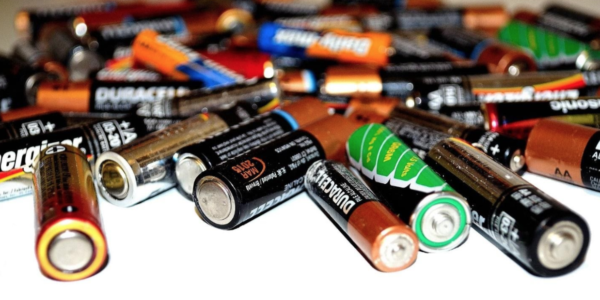How many devices in your home use batteries? The answer to that should be many devices ranging from toys to remote controls. When batteries die you have to replace them with new ones. However, you may not always have new batteries at home. that is the reason you should learn some helpful battery hacks that can save you money. They are simple tricks that can prolong the life of your batteries and ensure your devices keep working. Here we go!
Test the Charge Left
The first thing is to know how much charge a battery has left. Don’t assume that the batteries in a particular batch have discharged at the same rate. One or two could be having some charge left. You may use a digital or analog multimeter to find out how much charge a battery still has.
For example, a good quality D battery with some charge will show a reading near 1.5V. On the other hand, a depleted battery will show a reading that is close to zero. If you don’t have a multi-meter, you could use a battery tester.
If an alkaline battery, then performs a drop test. The battery won’t bounce when you drop it from a couple of inches above a flat surface. When depleted, the battery will have lots of hydrogen gas inside and is likely to bounce higher.
Correctly Store Batteries
When in storage, batteries tend to develop current leakage that leads to the eventual loss of charge. It gets worse if you use the wrong method to store the batteries. For example, having two batteries in contact with each other will lead to unexpected discharge, chemical reactions, leakage, overheating, and explosions. That’s why you should store your batteries on non-conductive material such as cellophane.
If you intend not to use your electronics for over a week, make sure you remove the batteries. You will prevent chemical leakages and possible damage to the electronic device. The best place to store batteries is in a cool, dry place. To prevent batteries from getting saturated with moisture, use rice and other desiccants to store them. Only store rechargeable batteries when fully charged. That way, you would be able to use them when needed.
Try Interchanging Battery Sizes
Did you know it is possible to interchange different battery sizes? For example, all 1.5V batteries can be interchanged so long as you have material to complete the connection. However, you will require a high level of ingenuity to pull it off. Since the amount of energy in a battery corresponds to its size, smaller batteries will get depleted faster.
To replace AA batteries with their AA counterparts, use quarters, dimes, nickels, pennies, and folded tin foil to fill in the gaps. Or, connect several low voltage batteries in parallel to increase the voltage. To get a 9V battery, you could connect six AAA, AA, C, and D batteries.
Rub the Connections Points
If a battery doesn’t seem to be capable of powering an electronic device, there could be a problem with the terminals. Rubbing connection points ensures it can discharge more power. Remove dirt or residue that might have built upon the terminals to improve conductivity. That’s especially true for alkaline batteries which tend to build up residue on the terminals.
Recharge When Needed
If you are tired of throwing away used batteries, why don’t you buy rechargeable ones? As you keep recharging and reusing the batteries, you will save a lot of money in terms of purchasing costs. When a battery gets depleted, all you need to do is to recharge it. The good thing is that rechargeable batteries exist in all sizes. You will find those that can work in radios, remotes, flashlights, and toys.
Did you know that you can recharge your batteries 500 times or more? You need a battery charge kit that allows you to recharge batteries while they are outside your electronic devices. Most battery kits use USB to recharge your batteries.
Avoid Freezing Your Batteries
One way to prolong the life of a battery is to keep it at anything less than room temperature. But that doesn’t mean that you freeze the battery. You might have the battery stays in the freezer for too long until you keep food next to it. Also, alkaline batteries tend to discharge at a much lower rate. When it comes to NiCd and NiMH batteries, keeping them frozen would help, given their high discharge rate. Before using a previously frozen battery, bring it to room temperature and recharge it.
As you can see, it is possible to save money by implementing one or all of the hacks discussed here. You will prolong the life of your batteries and avoid buying new ones. Also, it will be possible to keep your electronic devices running when needed.

